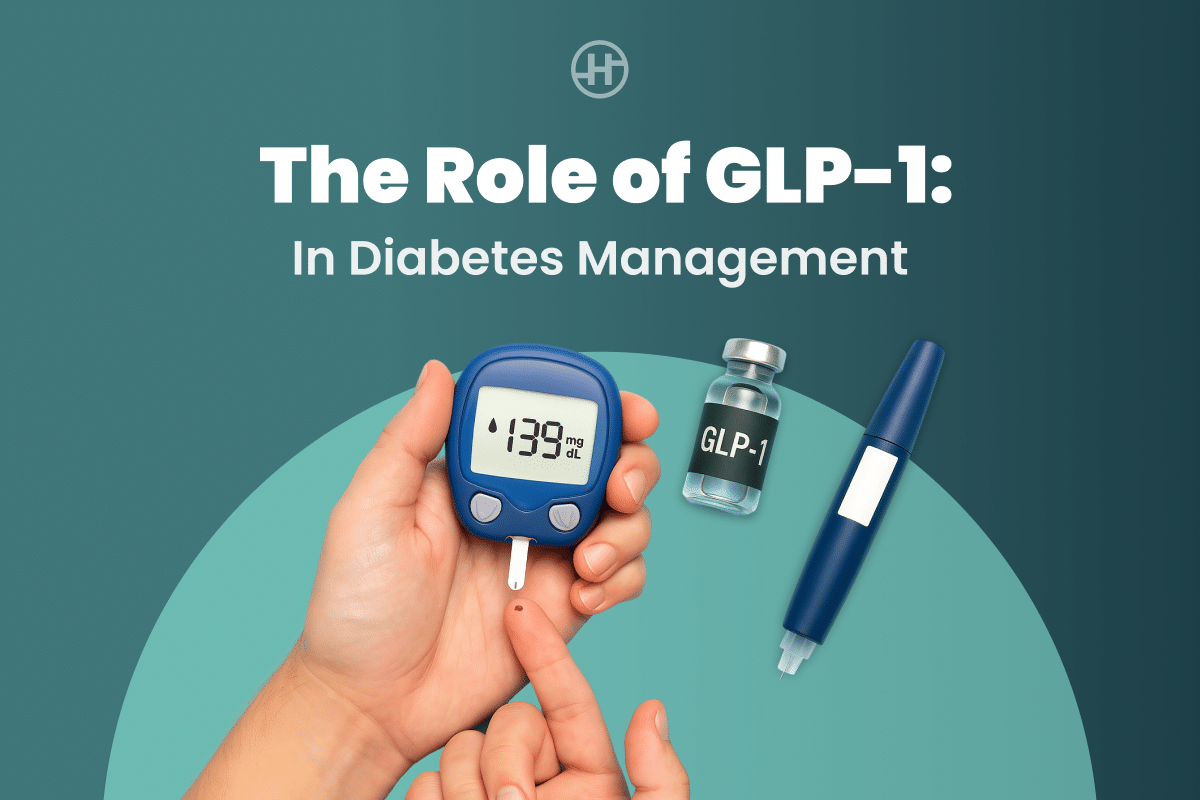Understanding GLP-1's Impact On Diabetes Management

Diabetes, particularly Type 2 diabetes, is a chronic condition that affects millions worldwide. Managing it effectively requires a holistic approach: diet, exercise, lifestyle changes, and sometimes, medication. Among the latest advancements in diabetes treatment, GLP-1 receptor agonists have emerged as a game-changing therapy.
But what is GLP-1? How does it help in managing diabetes? Let’s dive in.
What is GLP-1?
GLP-1, or Glucagon-Like Peptide-1, is a naturally occurring hormone produced in the gut in response to food intake. It plays a crucial role in blood sugar regulation, acting as a powerful messenger between the digestive system and other organs.
In people with Type 2 diabetes, GLP-1 levels are often lower than normal, which contributes to impaired insulin release and poor glucose control. That’s where GLP-1 receptor agonist medications come in — they mimic the action of natural GLP-1 and help restore balance.
How GLP-1 Helps in Diabetes Management
1️⃣ Enhances Insulin Secretion
GLP-1 stimulates the pancreas to release insulin, but only when blood glucose levels are high. This glucose-dependent mechanism makes it safer and lowers the risk of hypoglycemia compared to other insulin-stimulating drugs.
2️⃣ Suppresses Glucagon Release
Glucagon is a hormone that increases blood sugar levels. GLP-1 helps to suppress glucagon post-meal, thereby preventing blood sugar spikes after eating.
3️⃣ Delays Gastric Emptying
One of GLP-1’s lesser-known but highly impactful roles is its ability to slow down how quickly food leaves the stomach. This leads to slower absorption of glucose and a more gradual rise in blood sugar levels.
4️⃣ Promotes Satiety and Weight Loss
GLP-1 also acts on the brain to suppress appetite and increase feelings of fullness. As a result, patients often experience weight loss — a significant benefit, since managing weight improves insulin sensitivity and overall metabolic health.
5️⃣ Cardiovascular Protection
Several GLP-1-based medications have shown cardioprotective benefits, including reduced risk of heart attacks and strokes, making them an excellent option for people with diabetes and coexisting cardiovascular risks.
According to a recent study published by the National Institutes of Health (NIH) 2024, titled Comparative Effectiveness on Glycemic Control and Weight Management, various GLP-1 receptor agonists (GLP-1) have been shown to significantly improve blood sugar control, support weight loss, and enhance lipid profiles in individuals with Type 2 diabetes.
GLP-1 receptors represent a modern, multi-targeted approach to diabetes management — helping with blood sugar control, weight management, and heart health. As research advances, their role in treatment protocols will only become more prominent.
At Healthify, we believe in science-backed care tailored to your health needs. Speak to your doctor or coach to know if GLP-1 therapy is right for you.





